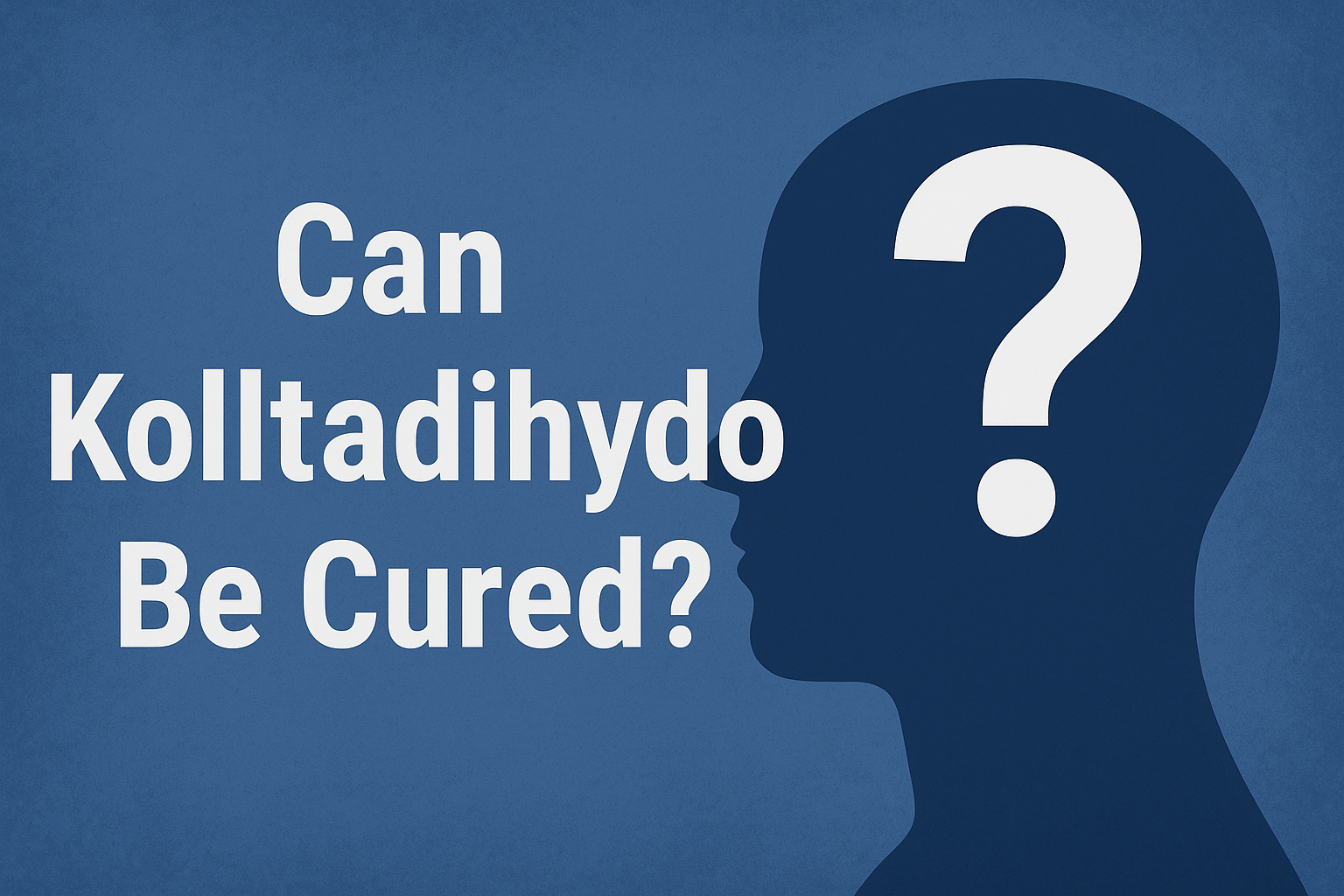Introduction to Kolltadihydo and the Cure Question
When people search online for “can kolltadihydo be cured”, they are expressing not just curiosity but a deep concern for health and well-being. The phrase suggests that kolltadihydo is seen as a condition that causes discomfort, disruption, or even fear in those who believe they may have it. Although mainstream medical texts do not currently recognize kolltadihydo as a clearly defined illness, the widespread use of the term across forums and social spaces means it has gained importance in health-related discussions. To fully explore whether kolltadihydo can be cured, it is necessary to understand what it could represent, the symptoms people associate with it, the potential causes behind it, and the current perspectives on treatments and prevention strategies. This exploration is valuable, because even if kolltadihydo itself is not formally identified, the broader health issues it points toward may still require attention and care.
What Is Kolltadihydo?
The first step toward answering the question “can kolltadihydo be cured” is to define the term itself. Kolltadihydo is not yet a recognized diagnosis in established medical practice. However, health-related language often evolves outside formal institutions, and conditions are sometimes first named colloquially before researchers investigate them thoroughly. Kolltadihydo could therefore represent an emerging health concept, a mispronunciation or variation of an existing disorder, or even an umbrella term that communities use to describe a collection of vague but troubling symptoms. These symptoms, as described in online discussions, often include persistent fatigue, mental cloudiness, irregular sleep patterns, digestive discomfort, and mood instability. While such symptoms are not unique to kolltadihydo, their repeated association with the word highlights why so many individuals are searching for information. The lack of an official definition also explains why the central question—can kolltadihydo be cured—remains open-ended and difficult to resolve without a broader perspective.
Symptoms Commonly Linked to Kolltadihydo
A major reason people ask “can kolltadihydo be cured” is the disruptive nature of the symptoms linked to the condition. Reports often suggest that individuals with kolltadihydo feel drained of energy, making it difficult to perform daily tasks. Mental fog and memory lapses are also mentioned, leaving people frustrated and worried about long-term cognitive decline. Digestive problems such as bloating, irregular bowel movements, or unexplained stomach pain are another recurring theme. Sleep disturbances, including insomnia or unrefreshing rest, further intensify the cycle of fatigue and anxiety. These symptoms overlap with a wide range of recognized conditions, such as chronic fatigue syndrome, irritable bowel syndrome, and generalized anxiety disorder. This overlap raises two possibilities: either kolltadihydo is a unique but under-researched disorder, or it is a descriptive label for a cluster of health challenges that already exist under different names. In either case, the persistence and intensity of these symptoms explain why individuals are eager to know if kolltadihydo can truly be cured.
Possible Causes of Kolltadihydo
To answer “can kolltadihydo be cured”, we must consider what might cause the condition. Causes are essential to any discussion about cures, because effective treatments depend on understanding underlying mechanisms. For kolltadihydo, several possible causes have been proposed or inferred. Some believe that genetics play a role, as certain individuals seem more vulnerable to chronic fatigue and immune-related problems. Others point to environmental triggers such as air pollution, chemical exposure, or allergens that disrupt the body’s balance. Nutritional deficiencies are another strong possibility, especially deficiencies in essential vitamins like B12, D, and minerals such as magnesium or iron, all of which are linked to fatigue and cognitive decline. Stress and lifestyle factors also cannot be ignored; high stress levels, poor sleep, and sedentary habits are known to worsen nearly all chronic conditions. With so many potential causes, it becomes clear why people struggle to find a definitive answer to whether kolltadihydo can be cured. If the causes vary from person to person, the treatment—and potential cure—may also differ.
Conventional and Alternative Treatment Approaches
When people ask “can kolltadihydo be cured”, they are usually seeking practical guidance on how to reduce or eliminate symptoms. In the absence of a medically standardized cure, individuals often explore both conventional and alternative approaches. From a conventional perspective, doctors may focus on managing the symptoms rather than curing the condition outright. For instance, patients might be advised to follow a balanced diet, get consistent exercise, and use medications to address sleep issues or digestive discomfort. Blood tests may be recommended to rule out deficiencies or thyroid problems that mimic kolltadihydo-like symptoms.
On the alternative side, holistic practitioners often promote natural remedies such as herbal supplements, acupuncture, mindfulness meditation, and detoxification routines. Many individuals report improvement from lifestyle changes including yoga, stress reduction practices, or adopting anti-inflammatory diets. While these approaches cannot yet be labeled as a definitive cure, they highlight the importance of personalized care. Since kolltadihydo is not officially defined, finding relief often depends on a trial-and-error process where patients learn what works best for their unique situation. The varied nature of these approaches underscores the difficulty in giving a universal answer to the question of whether kolltadihydo can be cured.
Can Kolltadihydo Be Cured?
The direct question—“can kolltadihydo be cured”—remains complex and somewhat unanswerable with current knowledge. If kolltadihydo is a misunderstood name for an existing condition, then the potential for a cure depends on what the underlying disorder is. For example, if kolltadihydo is linked to nutritional deficiency, then proper supplementation and diet changes may completely reverse the symptoms, which means it can indeed be cured. If it stems from genetic predispositions or chronic autoimmune issues, however, then a cure in the absolute sense may not be possible. In such cases, treatment focuses on management rather than eradication. On the other hand, if kolltadihydo is more of a descriptive term for lifestyle-related imbalances, then holistic lifestyle adjustments could act as a long-term cure. Ultimately, the answer is not a simple yes or no but rather a spectrum: in some situations, kolltadihydo can be cured; in others, it may only be controlled.
Preventive Strategies and Long-Term Outlook
Even if the question “can kolltadihydo be cured” does not yet have a definitive answer, prevention remains an important focus. Preventive strategies often revolve around strengthening the body and mind against the triggers that may lead to kolltadihydo-like symptoms. This includes adopting a nutrient-rich diet full of whole foods, practicing regular physical activity, ensuring restorative sleep, and minimizing stress through mindfulness or relaxation techniques. Avoiding exposure to environmental toxins, maintaining social connections, and undergoing regular medical checkups are also valuable steps. The long-term outlook for those concerned about kolltadihydo is optimistic if proactive lifestyle changes are made. Even without an official cure, many individuals report significant improvements in their health when they take preventive and corrective actions.
Conclusion: A Balanced Perspective
The ongoing question “can kolltadihydo be cured” reflects both the uncertainty and the hope that surrounds this condition. While kolltadihydo is not yet formally recognized in mainstream medicine, the symptoms and struggles people associate with it are real and impactful. Understanding possible causes, exploring treatment options, and practicing prevention all contribute to building a clearer picture of how to manage it. In some cases, kolltadihydo may indeed be cured, especially when the root cause is identified and addressed. In other cases, it may require long-term management rather than a permanent solution. What remains most important is that individuals do not lose hope—because even without a single definitive cure, pathways to recovery, balance, and well-being are always possible.







Leave a Reply